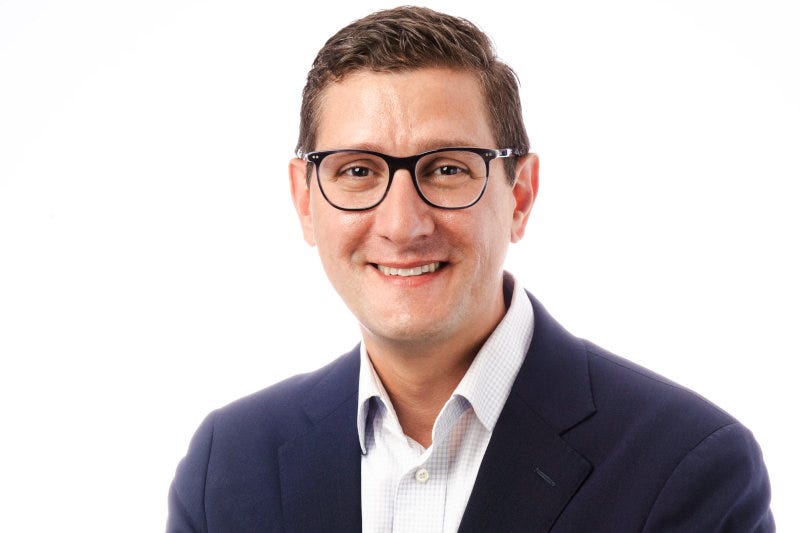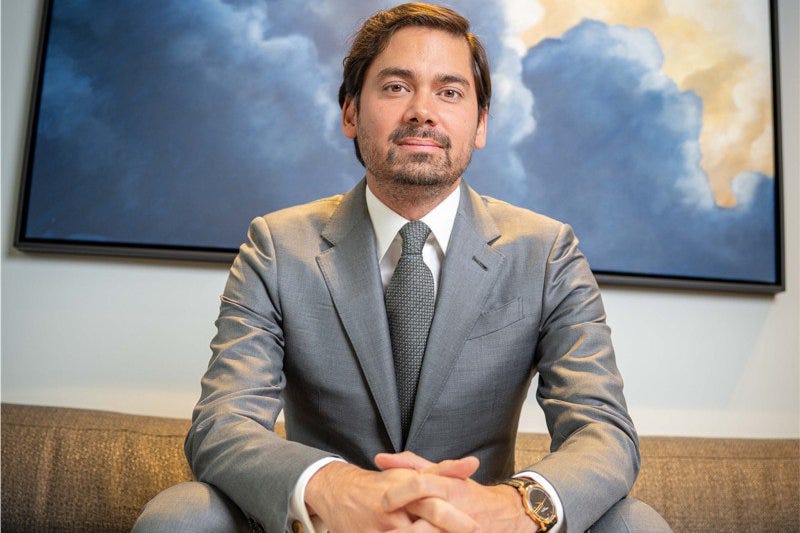- PE 150
- Posts
- Inflation Turns Debt Into Alpha — How PE Is Compounding Through 2025
Inflation Turns Debt Into Alpha — How PE Is Compounding Through 2025
As inflation quietly erodes the real value of debt, private equity firms are redefining leverage itself—borrowing in paper, building in substance, and turning monetary drift into long-term compounding power.
Good morning, ! This week we’re unpacking Europe’s family-first deal dynamic, the rise of creative liquidity tools as exits stall, why inflation is turning debt into an ally for PE sponsors, and how data-rich assets like Octus are redefining the next wave of premium exits..
Want to advertise in PE 150? Check out our self-serve ad platform, here.
Know someone who would love this? Pass it along—they’ll thank you later! Here’s the link.
DATA DIVE
Your Debt Just Got Lighter (Thanks, Inflation)

The dollar is losing altitude, and Private Equity firms are quietly celebrating. Why? Because when your debt is fixed and your assets cash-flow, inflation does the heavy lifting. PE thrives when liquidity expands faster than productivity, turning nominal liabilities into melting ice cubes. The report calls it “borrowing in paper, building in substance”—and it's not just poetic. Gold above $4,000 isn’t just market drama, it’s a structural re-rating of fiat credibility. For PE sponsors, the opportunity is clear: use long-term illiquidity and leverage to surf macro drift. In other words: debt compounds wealth, if you borrow right and build real.
TREND OF THE WEEK
Europe’s PE Entry Point? Family Business First
Across Europe, family-to-sponsor deals dominate private equity-backed entries. In every region shown—from France to Benelux—these deals account for over 50%, peaking at 64% in Benelux and 63% in Italy. Sponsor-to-sponsor transactions, often a hallmark of a more mature ecosystem, trail far behind in most markets.
Carve-outs remain a minor but strategic sliver—generally hovering between 11–19%—while public-to-private deals are almost non-existent.
Why it matters: For PE sponsors hunting for new platforms, the European mid-market still runs on generational transitions, not corporate spinoffs or secondary buyouts. That means operational complexity, slower timelines—but often better entry pricing and value creation potential.
The implication: local relationships still matter. Sponsors looking to scale in Europe need differentiated sourcing models, not just capital. (More)

PRESENTED BY RAD INTEL
Wall Street Doesn’t Get to Keep This One
Most game-changing tech deals never reach the public until it’s too late. The early upside is locked up by VCs, hedge funds, and insiders.
RAD Intel’s Reg A+ offering changes that. Any investor can now buy shares at $0.81—not just the elite few.
RAD Intel has raised $50M+, grown valuation 4,900% in four years*, and reserved Nasdaq ticker $RADI.
Backed by Adobe, Fidelity Ventures, and insiders from Google, Meta, and Amazon.
A who’s-who roster of Fortune 1000 clients and agency partners leveraging our award-winning AI across brands like F1, P&G, Porsche, L’Oréal, Sephora, the World Cup, Nissan, and more.
Fast Company calls RAD Intel “a groundbreaking step for the Creator Economy.”
Sales contracts already doubled in 2025 (vs FY2024)
Invest early in the AI infrastructure Fortune 1000 brands already use—before Wall Street prices you out.
LIQUIDITY CORNER
Cash Flow > Vintage Year

Liquidity is no longer a boring checkbox—it's a sharp edge. With European LPs caught in a distribution drought, secondaries and co-investments have moved from nice-to-have to deal-critical. Millreef’s Nico Taverna put it bluntly: “Distributions are low... that plays in favour of secondaries.” Meanwhile, Brookfield’s Alexander Hütteroth called co-invests “key” to winning mandates. For LPs, they offer targeted exposure. For GPs, they buy room to swing bigger. Across DACH, firms like Aurelius and Pinova aren’t just selling track records—they’re selling operational conviction and liquidity access.
The bottom line: the next fund won’t be won on IRR alone. It’ll hinge on transparency, portfolio construction, and whether a GP can help LPs get liquid in a market that’s still very much stuck. (More)
DEAL OF THE WEEK
Permira Eyes $4B Exit from Financial Data Play Octus
Permira is prepping a potential $4B+ sale of Octus (formerly Reorg), setting up what could be one of the largest data infrastructure exits of 2026. The firm has begun early conversations with banks, with a formal auction likely next year.
Permira acquired Reorg in 2022 and rebranded it as Octus in 2024, backing international expansion and deeper product penetration in credit, restructuring, and analytics. Now, as investor appetite for high-retention, data-rich platforms soars—especially those powering fintech and AI workflows—Octus looks poised for a premium outcome.
Strategics and PE buyers alike are circling, drawn by sticky SaaS revenues, content moats, and the AI-validation use case. Octus plays directly into the current arms race for proprietary datasets, as acquirers scramble to build defensible stacks in financial intelligence and restructuring coverage.
Why it matters: This is a textbook PE play—buy, scale, rebrand, exit at elevated multiples—and a signal that the data M&A wave isn't done yet. As GPs seek liquidity amid exit gridlock, expect more sales of content-driven software companies with AI tailwinds. (More)
Evolver: Reasoning Systems That Scale Institutional Investment Intelligence
Private equity success depends on applying decades of institutional knowledge consistently across complex, interconnected value creation challenges. Traditional tools automate tasks. Evolver builds reasoning systems that think.
Our platform doesn't just process data—it synthesizes your firm's collective investment intelligence, maintains contextual memory of portfolio evolution, and reasons through multi-layered operational interdependencies the way your most experienced professionals do.
Navigator learns from every deal outcome, building persistent institutional memory that gets smarter with each investment cycle. It reasons through complex scenarios: How does a pricing strategy in one business unit affect supply chain optimization in another? What patterns from your best exits should inform current transformation initiatives?
This isn't AI automation—it's augmented institutional intelligence. Our reasoning systems apply your firm's investment philosophy and decision-making frameworks consistently across every portfolio company, learning and adapting based on real outcomes.
Stop competing on experience alone. Scale your institutional reasoning across every investment decision, operational challenge, and value creation opportunity.
Experience strategic intelligence that thinks like your best investment professionals—with perfect memory and pattern recognition across your entire portfolio history.
PRIVATE CREDIT
The One-Percent Club

Private credit managers are becoming ultra-selective — think Ivy League admissions, but for borrowers. Nearly half of UK and EU lenders (45%) now close fewer than 1% of deals they screen. In the U.S., only 16% of managers fall into that bucket, suggesting a slightly higher risk appetite (or simply more deals to sift through). The big picture: underwriting standards are tightening, competition for quality credits is fierce, and macroeconomic uncertainty still looms. Only 7% of respondents globally close more than 5% of screened opportunities. In other words, if you’re not top-tier, you’re not getting financed. Quality over quantity isn’t just a mantra — it’s the market. (More)
MICROSURVEY
Creative Liquidity Takes Center Stage

With exits slowing, firms are turning to alternative liquidity tools to keep capital flowing. According to the Proprietary Survey (N=110), dividend recaps (27%) and preferred equity solutions (25%) are the top choices across respondents, signaling a shift toward unlocking value without full exits. NAV-based financing (20%) is also gaining traction as a bridge for extensions and distributions.
Bankers favor dividend recaps and preferred equity, while consultants (35%) highlight cross-fund and structured deals tied to GP-led transactions. PE sponsors are leaning into cross-fund solutions (31%), and corporate development teams prefer structured equity (38%) to boost liquidity without adding leverage.
The takeaway: liquidity is being redefined. Tools once reserved for distressed or niche use are now central to portfolio strategy, allowing sponsors and corporates to stay invested longer, manage cash needs, and navigate a tougher exit environment with flexibility and precision. (More)
MACROVIEW
America's Balance Sheet Just Got Heavier

The U.S. Net International Investment Position hit –$26.14T in Q2 2025—yet another reminder that America is the world’s favorite investment asset… and borrower. What happened? Liabilities grew $4.16T, outpacing the $2.68T boost in U.S. foreign assets, driven by a rising dollar and booming U.S. equities. Blame it on equity market outperformance, exchange-rate shifts, and a big helping of foreign appetite for U.S. debt.
Foreigners keep buying; Americans keep spending. But with investment income turning negative in 4 of the last 5 quarters, the check may be coming.
A widening NIIP isn’t inherently a red flag—but it’s a flashing yellow. The deeper the U.S. relies on foreign capital, the more it needs fiscal guardrails that don’t wobble every election cycle. (More)
THIS WEEK IN HISTORY
Dell Goes Big: The $67B EMC Megadeal
In one of the boldest post-crisis buyouts, Dell announced its $67 billion acquisition of EMC, the largest tech deal in history at the time. The move was designed to transform Dell from a PC maker into an enterprise tech powerhouse—spanning servers, storage, virtualization (via VMware), and IT services.
The deal was backed by Silver Lake, leveraged to the hilt, and took five years to prove out. Dell eventually spun off VMware in 2021, generating over $9 billion in special dividends and helping reduce net debt by over half. The original thesis—hybrid infrastructure at scale—mostly played out.
Why it matters:
This was private equity’s playbook at its most ambitious: bet big on platform shifts, lean into complexity, and let time and cash flow do the work. In today's market, where transformational deals are rare and scale harder to finance, Dell-EMC stands as a reminder of what conviction capital looks like when rates are low and vision is long. (More)
COMPLIANCE CORNER
AML 2.0: The KYC Crunch
Private equity and fund managers are staring down a new compliance era. FinCEN’s August 2024 rule would pull most private fund advisers into the AML/CFT regime under the Bank Secrecy Act, treating them as full financial institutions. Think suspicious activity reports, customer due diligence, training, and independent testing — the works. Originally slated for January 2026, implementation is now pushed to 2028, but no one’s celebrating. The delay just means more time to overhaul onboarding, centralise compliance, and rethink fund-admin contracts. The cost curve is rising, and “light KYC” is officially dead. Bottom line: AML is the new ESG — compliance now sits at the deal table. (More)
INTERESTING ARTICLES
TWEET OF THE WEEK
Terrifying Reality of 2025
Financial sponsor built a prototype in 2 weeks during diligence on an AI-healthcare company.
Prototype outperformed the target’s core product in clinician testing.
Deal killed.
— The Icahnist (@TheIcahnist)
10:36 PM • Oct 27, 2025
"The first step toward success is taken when you refuse to be a captive of the environment in which you first find yourself."
Mark Caine






